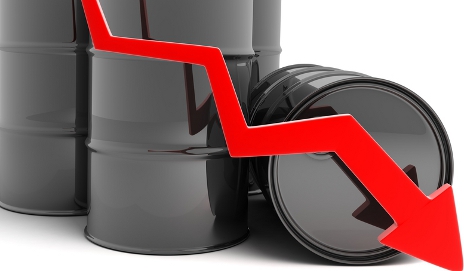As an oil producing country outside the Gulf the country is taking issue with the strategy not to be proactive in an effort to boost prices. Nigeria’s Emir of Kano and outspoken former central bank governor of the country said that Saudi Arabia’s decision to flood the market with crude is a mistake and one that has been repeated several times in the past four decades.
Mohammad Sanusi II, the Emir of Kano in Northern Nigeria, questioned whether the decision to accelerate production even benefits the kingdom. “I am not sure it benefits Saudi Arabia itself. Right now they’ve drained their reserves,” the Emir said referring to recent reports that fund managers were asked to unload $70 billion of assets on behalf of the Saudi government due to depleting reserves.
“This is a mistake the Saudis have made before. In the 1970s and 1980s they created an oil glut and they thought they would get rid of it and oil prices came down to $10, $15 a barrel and everybody suffered for that,” said Sanusi, “It does not help them and it does not help anyone.”
It has certainly hurt Nigeria, Africa’s largest oil producer. According to OPEC’s latest monthly report, Nigeria’s output is hovering around 1.9 million barrels a day.
But the country’s state-run oil giant Nigerian National Petroleum Corporation (NNPC) reported that revenues fell by two-thirds between September 2014 and July 2015 after the other sizeable producers with proven reserves — the UAE, Kuwait and Qatar — backed the policy put forth by the kingdom’s veteran oil minister Ali Al Naimi.
Oil prices have spiked up after Vladimir Putin’s intervention in Syria, which is starting to reintroduce risk into the energy market. Crude is trading about $7 dollars from their recent lows, but 2016 may prove more difficult than originally anticipated as emerging markets begin to veer off course faster than one would have hoped for.
This week the International Energy Agency predicted that demand growth tumbled from a five-year high of 1.8 million barrels a day to 1.2 million barrels next year. At the same time, the IEA said that the “call” on Opec crude may dip slightly next year to just over 31 million barrels a day.
While the alliance of Gulf states has steadfastly towed the line on not cutting output in a quest for market share, two other low-cost regional producers are girding for their re-emergence in the next year.
Iraq has already raised output by a million barrels a day to over 4 million and Iran’s petroleum minister Bijan Zaganeh declared during our CNN interview he plans to hit the same level by December 2016.
This will put additional strain on players outside the Middle East, especially those with a higher break even price like Nigeria, which did not shore up its spending.
Nigeria’s relatively new President Muhammadu Buhari has admitted he has plenty of his own internal housekeeping to do when it comes to the country’s oil operations. After winning office in March, he has vowed to root out corruption in the notoriously murky sector.
The President ordered a review of all contracts and barred vessels from loading crude after finding that 250,000 barrels of daily production have gone missing, after an audit conducted by PwC was completed in April.
Mohammad Sanusi II, as central bank governor, created a political storm (that cost him his job) when he said that billion of dollars were not accounted for during the administration of President Goodluck Jonathan. This past week former minister of petroleum Diezani Alison-Madueke came under investigation by British authorities for alleged bribery and money laundering — charges she said she plans to refute.
“Based on the PwC report there was about $6 billion over a 19-month period worth of oil that was taken … These were lifted ostensibly off of illegal contacts totally criminal and these are the type of problems that we have, ” the Emir said while reiterating his original declaration that a total of $20 billion of crude revenues went missing.
President Buhari last month said that he would take over the running of the oil ministry himself and perhaps even the NNPC. This week there were signs of backtracking on that strategy, by leaving the post vacant.
Either way, the Emir said it could take 18 months to complete what the new President promised — to plug what has been a leaky organisation for decades — made more challenging by today’s uncertain price environment.

